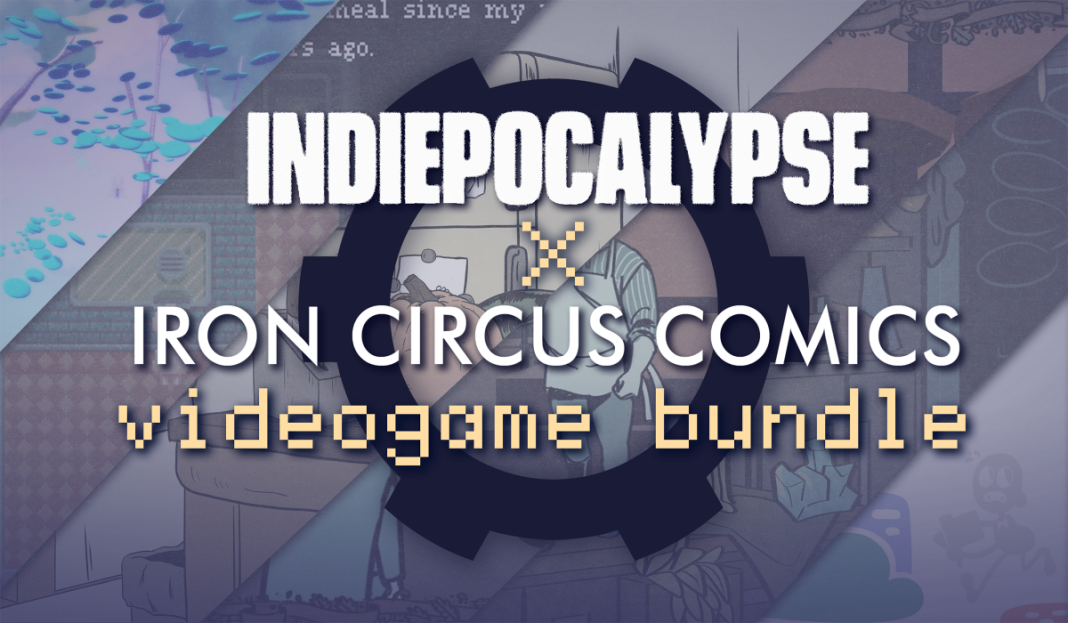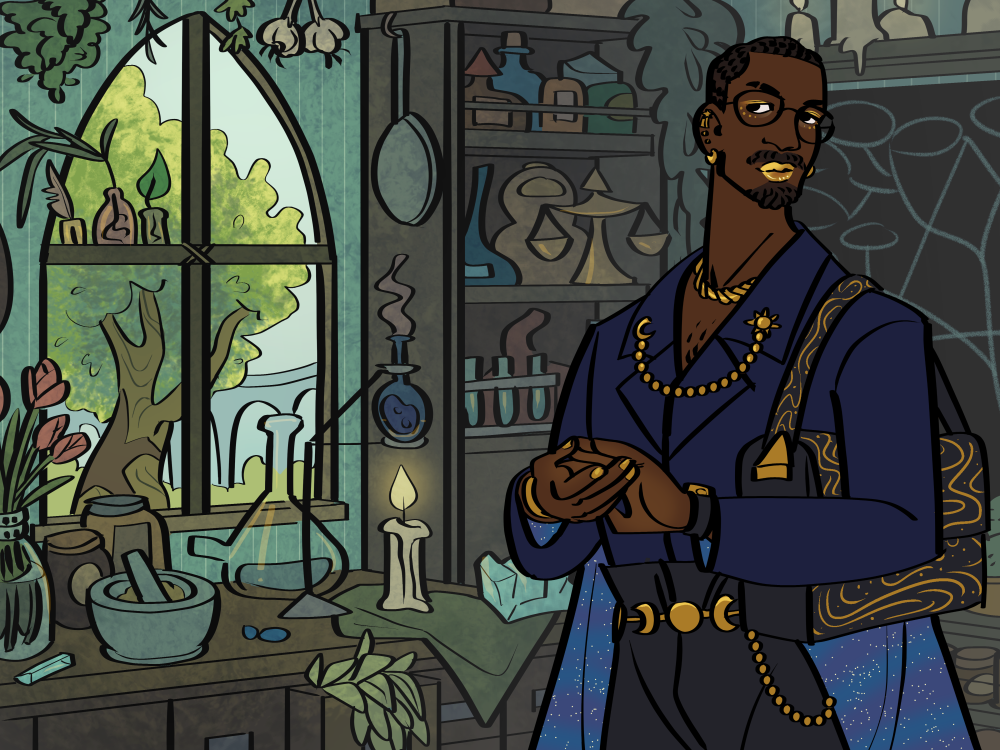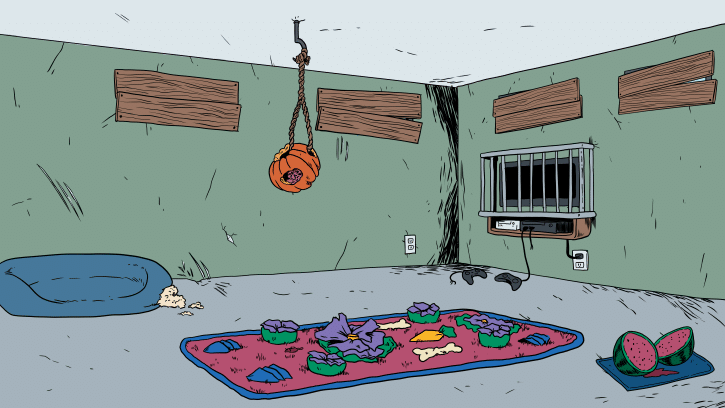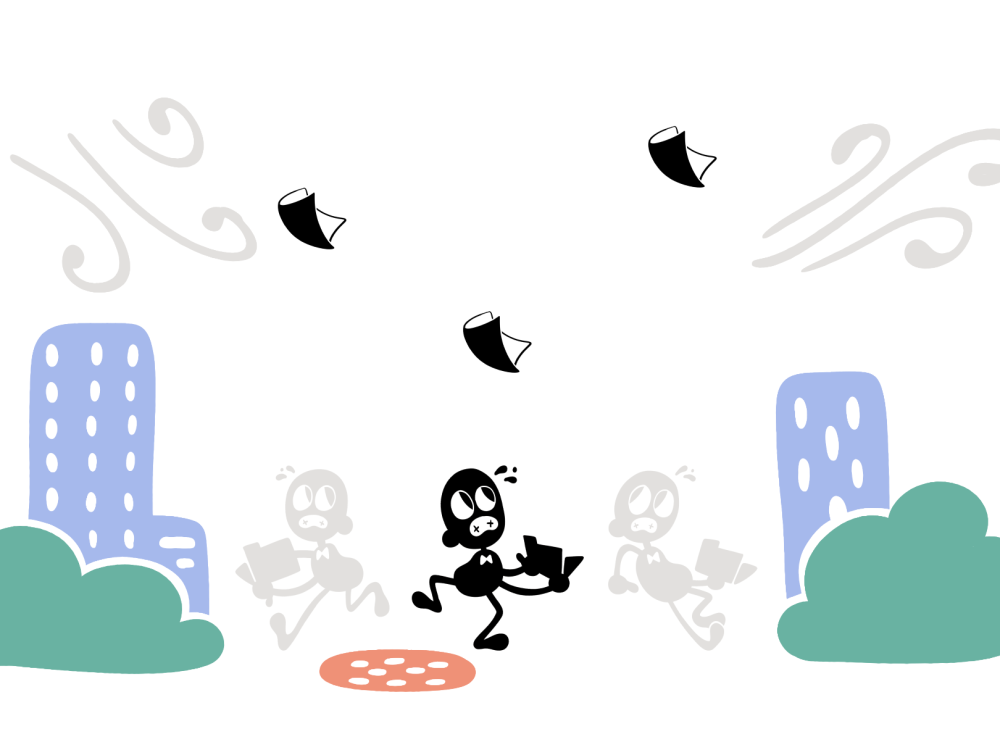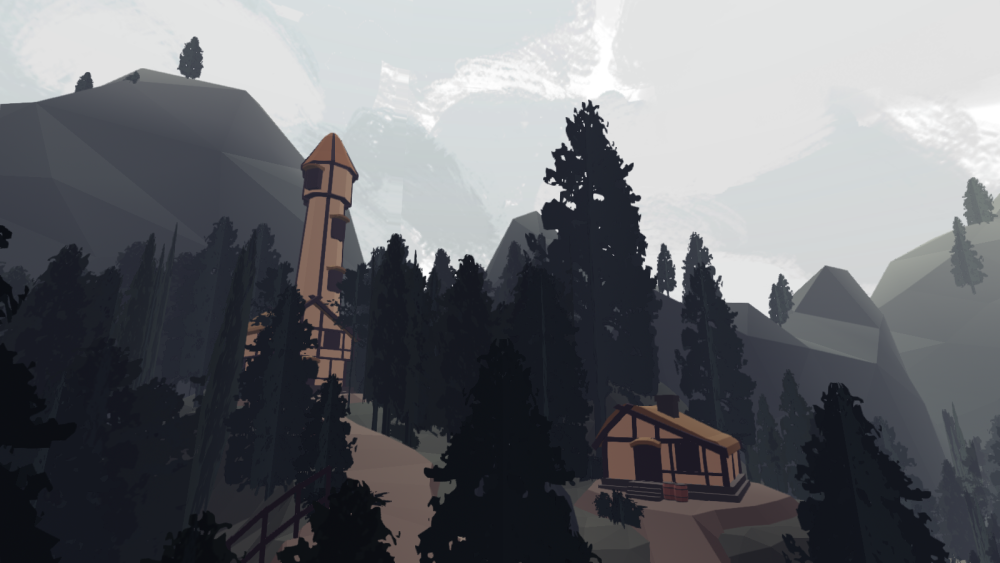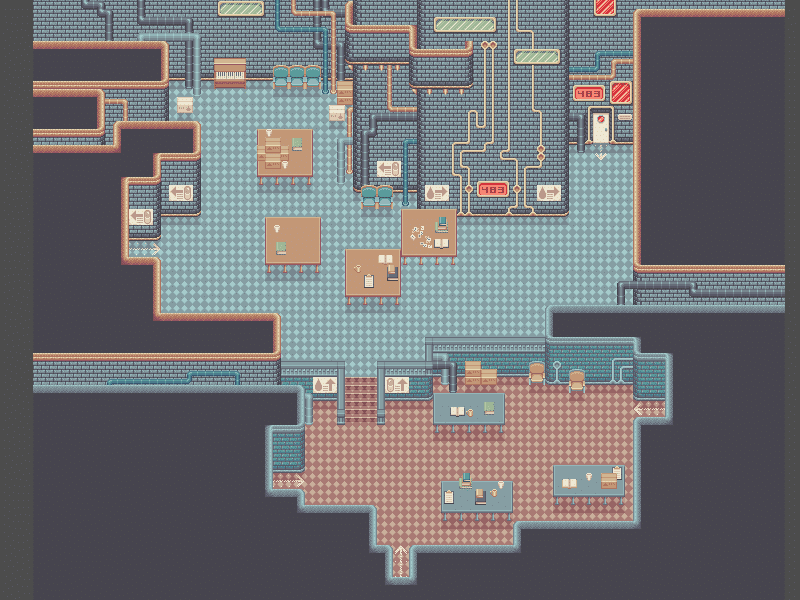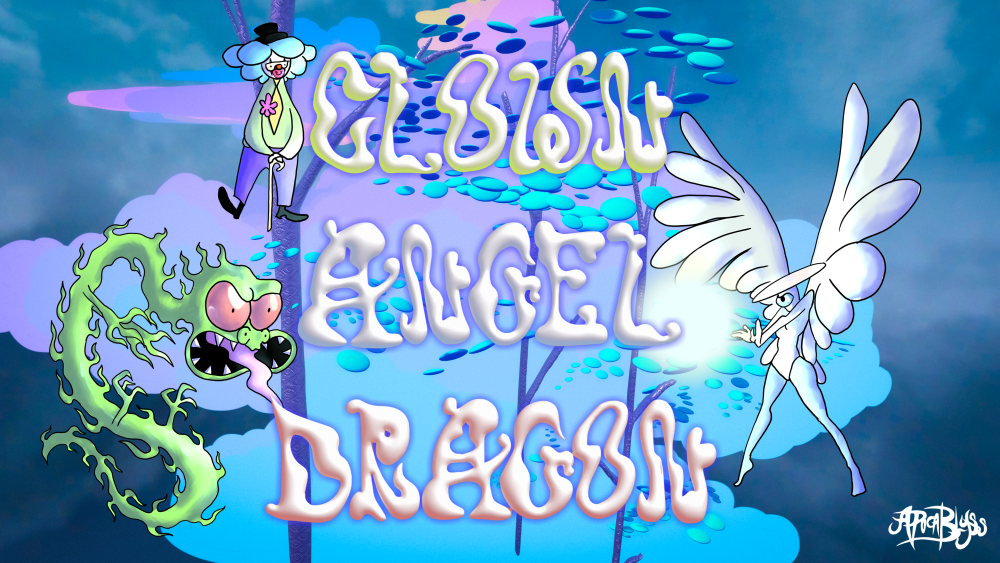Iron Circus Comics is the successful independent comics publisher behind such works as Smut Peddler, Banned Book Club and the Lackadaisy animated pilot film. Indiepocalypse is a long-running online “zine” that has featured countless weird and fascinating independent games. The two have now joined forces to form Iron Circus Games, an initiative that matches artists at Iron Circus with developers picked by Indiepocalypse. Today, they are crowdfunding their first six titles.
One of these artists is Kel McDonald, the creator of webcomic The City Between as well as the editor of the anthology series Cautionary Fables and Fairytales. Comics Beat had the chance to speak to them as well as Andrew “PIZZAPRANKS” Baillie, the one-man army behind Indiepocalypse. They spoke about such topics as crowdfunding economics, Retro Game Challenge and what it means to make games for yourself rather than an audience. The following interview has been edited for clarity and content.
Adam Wescott: Kel, what are your past experiences with games?
Kel McDonald: This is my first game. So other than playing games, zero experience. I really like resource management games. I’ve put in close to 3000 hours in Rimworld, which is about managing a space colony with people that look like Legos.
I also like games where you explore. I like Breath of the Wild and have been streaming Baldur’s Gate on my Twitch. I did one little comic summary of my first stream but haven’t had time to do that for the others. I don’t play a lot of games, but the games I do pick up I play forever.
I’ve also played Slay the Princess. Since I was Abby’s editor on The Crossroads at Midnight, I thought, “Let’s check out Abby’s game.”
Wescott: Andrew, what are your past experiences with comics?
Andrew Baillie: My comics experience is broad and dense. For crowdfunded comics, I have three or four publishers that I routinely back. I have my kuš! subscription and then some bigger names here and there. But I’m an indie junkie, you know?
Two years ago, I did a similar project with kuš! Comics. I thought, “I can do one every year.” Spike was more ambitious and wanted to try crowdfunding. By comparison, Indiepocalypse is fully self-funded on a low budget.
Wescott: Besides kuš! and Iron Circus, have you tried reaching out to other comics folks in the past?
Baillie: Iron Circus was my second, so I’m two for two. I’ve found out you can do a lot of things by randomly emailing people. They’ll say, “I’d love to do something like this.”
I can do it forever
Wescott: Comics and videogames have their own history with crowdfunding.
Baillie: They are on very different trajectories as well. Comics feel like a sure thing now. It’s closer to pre-orders.
McDonald: I hear more about games that get crowdfunded successfully, but then still don’t happen, than I do comics.
Baillie: When I’m crowdfunding the Avery Hill spring line, I know I am getting six books in the spring. But if I was to crowdfund a video game, I think, “will it come out?” if it’s somebody I don’t know. If they’re banking on recognizable names, it’s not actually crowdfunding, it’s a way to show publishers you have support. No one’s making Mighty Number 9 for a million dollars.
Wescott: Kel, in past interviews, you said that the most important thing to have before you launch a crowdfund is a built-in audience. Is that correct?
McDonald: When people email me to ask, “how did you make your crowdfund so successful,” Spike and I joke that “well, you get a time machine. You start a comic ten years ago. Then you crowdfund now.” Then you have ten years’ worth of readers and fanbase to pull from. Whereas if I launched a new project, even though I have my own fanbase, it won’t do as well as something I’ve been doing for a long time.
A few years ago, my friend and I crowdfunded a digital comic. It was an experiment to see if a crowdfund would work if there were no physical rewards. It was just to give my friend and I a page rate to make the comic. That did not do as well as Sorcery 101, or my webcomic The City Between, because it was a new story. Even though people know me, and they know that I will finish this thing, they don’t know 100% If they’ll like this new thing.
Wescott: Andrew, you’ve been Indiepocalypse for…five years, four years?
Baillie: Four and a half-ish. Fifty, fifty-three months, however that translates into years.
Wescott: What are your thoughts on longevity? Is Indiepocalypse established now?
Baillie: I can do it forever. There are more people getting into game development every day. The only thing that would stop it is if people stopped submitting games. I also have not repeated any developers yet. My theoretical worst case is that I pull the ripcord and say, “hey guys, you can get in here multiple times.” That buys me three more years.
Wescott: Have there been cases where you’ve spotlighted someone and then watched them grow as an artist?
Baillie: People outgrow me easily. I’ll see someone say, “Metroid Prime 4 just got announced, and I’m working on that!” I’ll say, “yeah, they were in Indiepocalypse two years ago.” Games are very precarious. There’s less space, even when itch exists, to make any money, unless you have a budget and a reasonably sized team. I hope to catch people and keep them in games long enough that they don’t burn themselves out.
When I organized the kuš! collaboration, David Schilter said, “a lot of these artists don’t play games.” I said, “that’s perfect.” Part of the joy of collaborating with comics artists is when they are unfamiliar or less familiar with games.
I like werewolves
Wescott: Let’s ask a few questions about the games you’re working on. Kel is working with Ren on Teething, a werewolf game. What’s it been like collaborating on this project?
McDonald: Ren asked me what kind of games I liked, and I said that I liked resource management or puzzle games. Then I told him I like werewolves. Ren came back with, “what if a game where you help your romantic partner prep the basement for their full moon?” I retorted with, “if it’s your romantic partner, they’re an adult, so why can’t they do it themselves?” We changed it to a child so that you do have to do everything. It adds an extra level of resource management, because you have to entertain the kid so that they’re not interfering with what you’re doing.
The first area, a store, was the last thing I drew. I wanted to know everything that you could buy in advance before drawing it, so that if we came up with a fun idea while doing one of the other settings, I didn’t have to redo it.
Wescott: You’re mostly handling art for the project, then?
McDonald: There’s some writing going on too. Ren sends me a script and I’ll punch it up. That’s been our back and forth.
Wescott: Are you happy sticking to art for now? Or would you like to try your hands at writing your own project?
McDonald: If I did some writing, I would have to sit down and give it more thought. I’m fast at drawing. I do art streams and can finish a comic page in a couple of hours, pencil wise. While it was a lot of artwork, it takes less time than if I had to sit down and map for different outcomes.
Wescott: Andrew, I was curious: how did you match artists with game developers?
Baillie: People pitched ideas and then agreed to work together, if I remember correctly.
McDonald: All the artists posted what kinds of games they like, and their work. Programmers were pulled to different people.
Wescott: A number of these developers were featured in Indiepocalypse before, right?
Baillie: Yes. My framework when it comes to commissions is to tap developers that I know like to make and finish games. It’s especially important for something that’s crowdfunded.
Wescott: Are there folks in this group who have never made a game for Indiepocalypse?
Baillie: Paloma Dawkins and a couple others I reached out to.
Supermarket money
Wescott: Your game, Interactive History of Coumpuvations and Interactive Software, is positioned as a museum exhibit for an imaginary games studio, right?
Baillie: That was the pitch because myself and John-Charles Holmes, who is working on the game with me, are extremely busy. We wanted something that could be done piecemeal. I pitched him, “what if we made Atari 50 for a cult games studio that never existed?”
Wescott: Have you played Retro Game Challenge?
Baillie: I love Retro Game Challenge. It’s probably the closest to this in that it’ll have a framing device. There will be interviews with fake developers (who are us) interspersed with a chronology of games from early LCD to the multimedia era.
Wescott: Is Holmes also mostly working on art?
Baillie: He’s familiar with the game maker that I’m using, so he could do work there as well. But primarily he’s doing art. I’m doing a little art here and there too because I can work on the small scale decently enough. When making an Atari-style or NES-style game, you work in 256 x 224 resolution.
Wescott: Have you made your own games in the past? I was looking through your itch page and found a few older ones.
Baillie: I’ve scrubbed a lot of them. The origin story of Indiepocalypse is that as I was getting better and better at making games, I realized that I didn’t want to spend six years making a four-hour game. I wanted to make smaller stuff. Unfortunately, I also want to make money.
Wescott: Feeding yourself is also important.
Baillie: I didn’t want to work retail anymore. A lot of Indiepocalypse is funded on supermarket money. During Covid, even. It was a nightmarish experience.
Most of the games I have on itch are sketches, not even games. I started making Indiepocalypse so that in the future, you could make a 20-minute game, and somebody would give you five dollars for it and say, “sounds good to me!”
Alivegames and deadgames
Wescott: Often people in games complain if a game is too short. Kel, do you see a similarity between these games and shorter works in the comics space?
McDonald: There’s some overlap. People want more bang for their buck. Many comics today are constructed so that they go on longer than they should, just to keep people tuning in. Webcomics are often somebody’s first comic, so they might not even realize they’re watering it down. Either they don’t have a plan, or they came through fanfiction. This is not a dig at fanfiction. But by its nature you want the characters to hang out and be buds because you love them. It kills the pacing.
When I was doing Sorcery 101, I accidentally saved all the files as web resolution because I didn’t know about print resolution. I had to redraw the first 400 pages. My advice to newbie comic artists is, don’t redraw anything, just keep moving forward. But because I had to redo that, I cut several pages because I realized, “oh this is just them faffing about for several pages. Nothing moves forward.”
With some AAA games I’ve played, while I do like exploring, it’s a lot of repetitive side quests sometimes. I’ve come to appreciate more focused games, unless they’re designed to be sprawling messes like Rimworld.
Wescott: Andrew, have you read Melos Han-Tani’s writing about this?
Baillie: I cite Melos’s post about “Deadgames and Alivegames” frequently. It’s a perfect encapsulation of what I’m looking for in games: the spark of a human being. Something can be made even by smaller teams and still feel like it wasn’t made by anybody. Like they made the idea of what a video game should be rather than the game you can imagine any person wanting to make.
Wescott: Would you say that the goal of the Iron Circus Games project is to make games that have the spark of the particular people who worked on them in it?
Baillie: Absolutely. We have a very hands-off approach, which is my general philosophy. I also commission one new game for Indiepocalypse every month. The most recent person asked, “do you have weekly check-ins?” I said, “no, I’ll see you in three months. Just make whatever you want to make, I trust you.”
She wants to take over the world
Wescott: How long do you think Iron Circus Games might last? Have you finished the titles yet for this project?
McDonald: A lot of them are 80-90% done. A few of them are done done. Spike wants to make more games, because she wants to take over the world.
Wescott: Payment’s a hot button issue in both the comics and the games world. Iron Circus Games is committed to a fair rate for participants, right?
McDonald: It’s a profit split for the most part. There was some money up front, but for the most part, it was a profit split across artist and developer pairings.
Wescott: How do you see this fitting into the ongoing collapse of the games industry as it exists?
Baillie: I’m increasingly feeling like my work doesn’t have anything to do with the games industry.
McDonald: It’s partly because the collapse of the games industry is more big game studios, right? Sometimes when people say, “comics are dying,” they’re talking specifically about monthly comics from Marvel and DC. That’s a separate industry from what Random House is doing, or from what manga or webcomics are doing.
Baillie: The layoffs at big studios and closure of indie studios have little impact on the people in their bedroom making a game unless they wanted a job at one of those places. The traditional games space is such a small slice of what games are as a medium. It’s as if all comics were Marvel and DC. Even most indie games say, “this is my version of cape and cowl stuff.”
Wescott: In the manga space, the question is, “what if every comic was a Shonen Jump comic?”
McDonald: Or not even, “what if every comic was a Shonen Jump comic,” but “what if every comic was a Shonen Jump comic that’s an isekai?”
Baillie: That feels even more pronounced within the narrow lens of the games industry. You’re a little guy, you collect points, you have an objective you’re going to complete and you’re going to win something.
Discovery is fun
Wescott: Something I was curious about, since Andrew brought up smaller games that exist in a different reality from the industry, are how they differ not just in design and space but time as well. Games that take a month to make versus games that take five to ten years.
McDonald: Well, they took longer than a month. Everybody has day jobs. We extended the deadline a couple of times, because of people dropping out or still not quite being done. We started maybe a year, a year and a half ago. A lot of that is organizational stuff. I remember Andrew, when you said the original deadline you wanted to shoot for, I said “No.” While that might be how long it takes for one person working on their own to make a game, adding coordination means you have to double that timeline.
Baillie: The scale of what one person can do is very different. My framework is four months now because I’m organizing a month in advance, but it was three months for the longest time. That is enough for people to make IGF nominated Sylvie Limes. Sometimes I’m sure these games existed in some form before, whether it’s an idea or partial code.
Also, the handy thing about making games is that you can reuse your work. I can iterate very quickly just because I have a heavy backlog of programming. I don’t have to worry about making the guy jump because I already have all that.
Wescott: Indiepocalypse has published tabletop RPGs in the past. Would Iron Circus Games be interested in putting out these games in the future?
McDonald: Spike has only talked about video games. If we did do tabletop stuff, we would probably loop in Spike’s husband, who’s more of a tabletop guy. Spike and I both don’t like to play games with other people. We want to sit down and not talk to anyone while we do our dark bidding on the internet.
Wescott: Another of Indiepocalypse’s collaborations was with Indie Tsushin. Were you thinking about organizing another similar project?
Baillie: There is another, focused not on Japanese developers but on another specific regional community. Probably not this year, but either that or some point next year.
Wescott: Any last words about your work or anything you’re excited about?
McDonald: I’m always excited about werewolves. People should get my little werewolf game and read my werewolf comics on my website.
Baillie: If I give anyone a call to action outside of “support the Iron Circus x Indiepocalypse crowdfund and check out these games,” it’s to check out something you haven’t heard of. Find a creative, follow people they follow, click through links if they have a webring. Just don’t know what you’re getting into. Discovery is fun.



